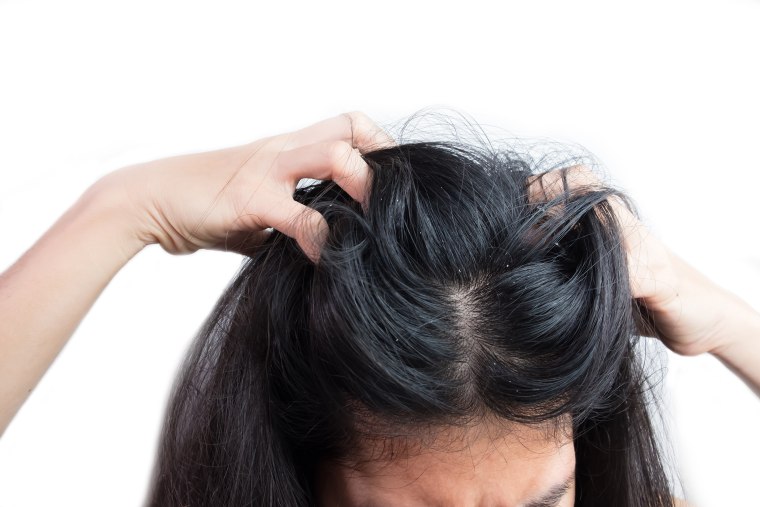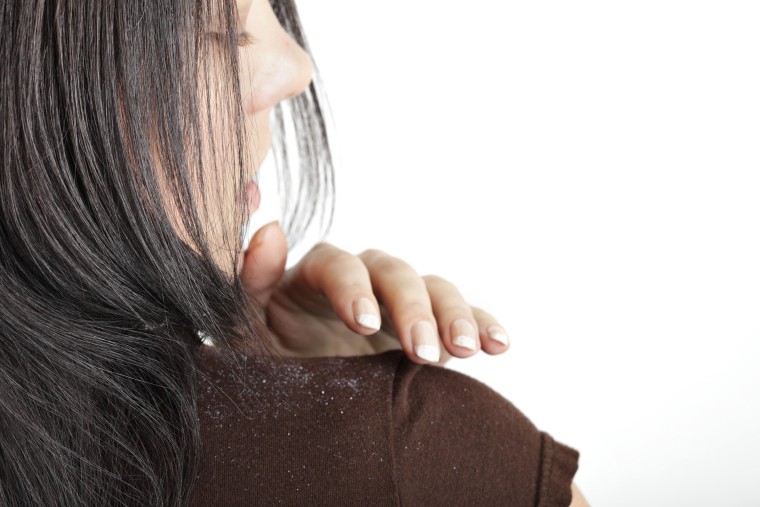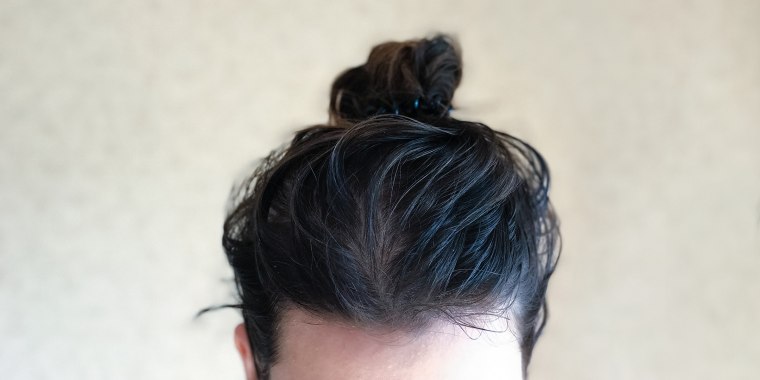Flaky scalp, itchiness and painful patches can all be signs of scalp dermatitis, an inflammation of the scalp that can have as many causes as it does symptoms.
In most cases, it's not a serious condition and can be treated with over-the-counter medications or topical treatments. When it's persistent, it can signal other conditions.
Three dermatologists shared their advice about scalp dermatitis with TODAY.
What is scalp dermatitis?
Scalp dermatitis is a wide-ranging condition, according to Dr. Shani Francis, a board-certified dermatologist who specializes in hair loss.
"Scalp dermatitis is a very broad condition, and it has several diagnoses that are very common, and some rare diagnoses," Francis said.

There are several different kinds of dermatitis, each caused by different factors and requiring different treatments. Seborrheic dermatitis can cause scaly patches, red skin and stubborn dandruff, while contact dermatitis typically occurs in a particular area, in response to an allergen or irritant. Other, less common types of scalp dermatitis can be caused by infections or even internal illnesses like cancer, according to Francis.
"Dermatitis is something you shouldn't blow off," Francis said. "It's usually something that could be harmless, but there are also rare things that can present on the scalp that definitely need to be diagnosed by a board-certified dermatologist."
What are the signs of scalp dermatitis?
Scalp inflammation might also be called scalp eczema and typically presents similarly to eczema on other parts of the body, Dr. Debra Wattenberg, who specializes in cosmetic dermatology, told TODAY.
"At the end of the day, the symptoms are almost identical to eczema," she explained. "You can have itchiness and dryness, and those who are prone to atopic dermatitis (eczema) can be more itchy on the scalp than those who aren't."

"Dermatitis refers to just inflammation of the skin," said Francis. "Anytime there's a rash or symptoms like itching or pain or tenderness, that really signifies that there is some kind of inflammation. You can also see redness or flakes. Any kind of flaking of the skin means the skin is shedding off. These symptoms basically define scalp dermatitis."
What can be done to treat scalp dermatitis at home?
For many, home remedies might be the first step towards treating scalp dermatitis. According to Dr. Hooman Khorasani, the chief of the division of dermatologic and cosmetic surgery at the Mount Sinai School of Medicine, the most common over-the-counter solution is a shampoo with selenium sulfide, a medication that can treat dandruff and some scalp infections. The medication can be found in shampoos like Head & Shoulders, Selsun Blue and others.
"The important thing that people need to know is that you have to leave the shampoo on for usually five or six minutes so it actually works," Khorasani said. "Especially when you have dermatitis, there's a thick layer of dead skin, and it's hard for the medications to kind of penetrate that layer... Anything with selenium sulfide has the ability to take care of it, but the key is to leave it for at least five minutes before rinsing it off."
Natural remedies like tea tree oil and apple cider vinegar can be used to treat scalp dermatitis, Wattenberg said. Francis added there are also herbal treatments available for those looking to avoid traditional medication. Depending on the type of scalp dermatitis, these topical remedies may not eliminate the root cause.
When should one seek medical attention?
All three agreed that if symptoms did not lessen after two weeks of over-the-counter treatment, patients should seek professional care. Francis also added that extreme symptoms, like bleeding, pain or hair loss, should be brought to a dermatologist as soon as possible.
Either a primary care physician or a dermatologist can give an initial assessment, but it's likely that persistent cases will require attention from a dermatologist.
"If you're not getting better, or it just doesn't feel right, you should go to a dermatologist," Francis said. "We have a wide range of options available to treat inflammatory conditions of the scalp."
Prescription options include antibiotics, topical steroids, non-steroidal topical treatments and injectable drugs.



